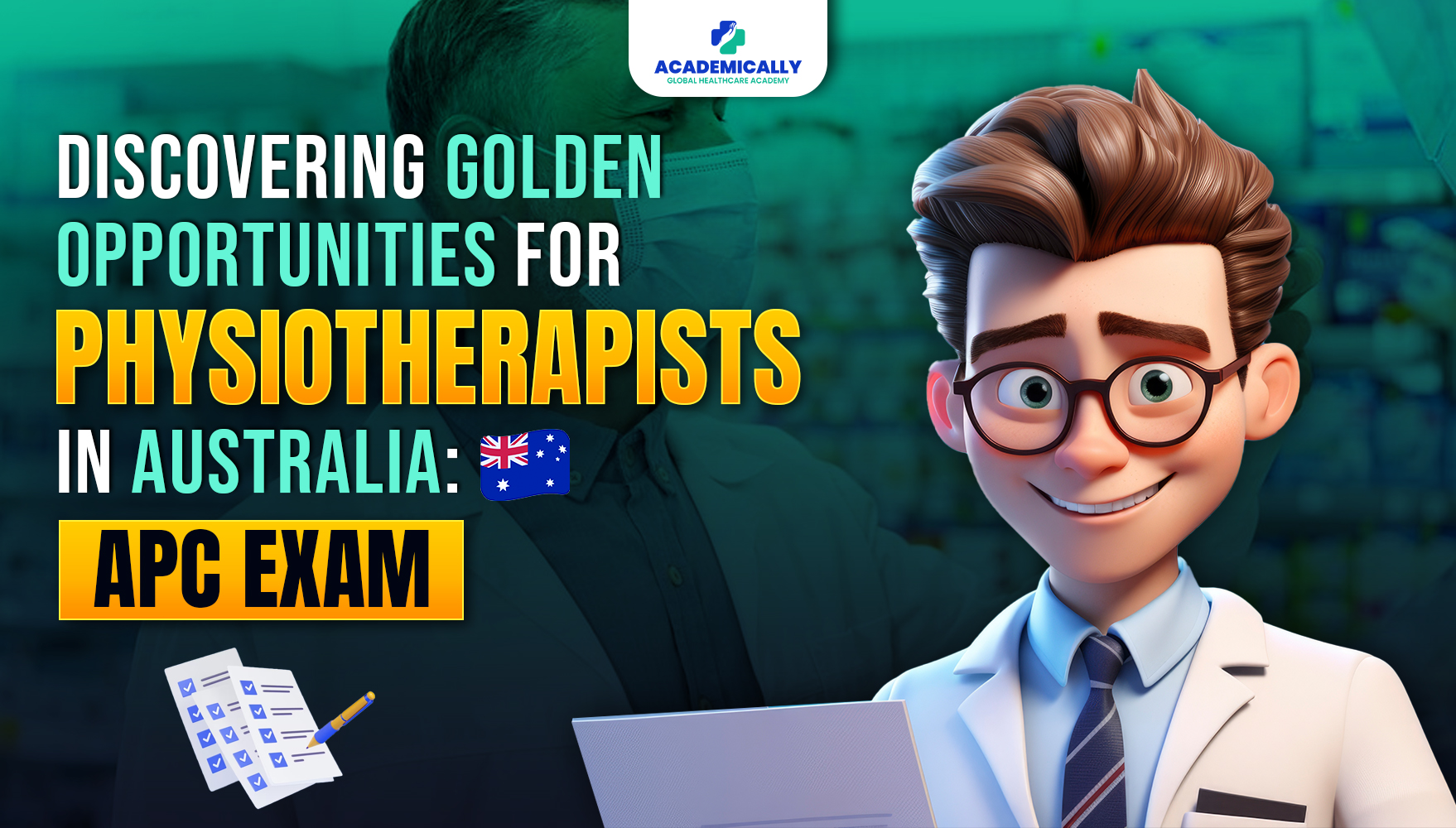Did You Know… over 1 in 4 physiotherapists entering the Australian healthcare workforce are internationally trained? With increasing demand across aged care, hospitals, and private clinics, Australia streamlined the assessment pathway to fast-track qualified professionals in the Australian Healthcare System.
As of 1 October 2025, the Australian Physiotherapy Council (APC) replaced its longstanding Standard Assessment Pathway with a new streamlined process, the Australian Physiotherapy Entry Pathway (APEP).
This transition is more than a name change; it’s a shift toward a remote-first, real-world assessment model that reduces travel time, shortens the assessment process, and aligns well with how physiotherapists practice in Australia. In this guide, we will deep dive into everything you need to know about the APEP Pathway.
What has Changed under the New APEP Pathway?
With APEP, the process becomes faster, better, and more relevant to the physiotherapy practice in Australia.
Structural Upgrades of the APEP Pathway
- Replaces the in-person Clinical Assessment with:
- Capability Assessment: a 1:1 remote oral exam
- Clinical Workshop: a one-day group assessment in Melbourne
- Remote-first model
- Detailed feedback
- Emphasis on cultural understanding & communication
APEP vs Standard Assessment Pathway: Side-by-Side Comparison
| Element | Standard Pathway | APEP (2025) |
| Clinical Exams | 1 Practical exam in Australia | 1 oral (remote) + 1 workshop (in-person) |
| Mode | Mostly in-person | Remote and in-person |
| Travel | 1-2 times till you clear the clinical exam | Once (Clinical workshop) |
| Duration | 9–12 months | 6 months |
| Candidate Support | Minimal | Feedback from evaluators |
| Focus | Academic knowledge | Real-world capability |
| Cultural Safety Training | Yes | Updated and mandatory |
| Final Certificate | Yes | Yes |
| Interim Certificate | Yes | Still available |
Benefits of APEP Over the Previous Standard Pathway
- Shorter total duration (6 months)
- Cost-effective, less paperwork and admin
- Remote-friendly with reduced travel
- Real-world, case-based assessment
- Personalised examiner feedback
- Higher relevance to clinical practice in Australia
APEP Pathway: Step-by-Step Guide
| Stage | Name | Mode | Duration |
| 1 | Eligibility Assessment | Online | 2–3 weeks |
| 2 | Cultural Safety Training | Online (self-paced) | 1–2 weeks |
| 3 | Written Assessment | Online/in test centres | Every few months |
| 4 | Capability Assessment | Remote oral exam | From Oct 2025 |
| 5 | Clinical Workshop | In-person (Melbourne) | Monthly sessions |
Total time: Can be completed in 6 months if you're consistent.
Are Express & FLYR Pathways Still Available?
Yes. These fast-track options remain open for eligible physiotherapists from approved countries with similar healthcare standards.
| Pathway | For Whom | Process |
| Express FLYR | Approved countries + streamlined credentials | Fastest |
| FLYR | Countries with partial equivalence | Moderate |
| APEP | All other international physiotherapists | Standard route from Oct 2025 |
Planning to Start the APEP Journey: Here’s the Checklist
| Requirement | Notes |
| Qualification | Physiotherapy Diploma or higher degree |
| Valid License | Must be registered in the home country |
| Passport | Up-to-date |
| English Proficiency | Required for AHPRA registration |
| Supporting Documents | Degree, transcripts, ID, etc. |
| Internet Access | For remote exams |
| Travel Plan | For Clinical Workshop (Melbourne only) |
Estimated Fees & Timeline
| Stage | Fee (AUD) | Fee (INR approx.) | Timeline |
| Eligibility Assessment | 1,170 | 70,200 | 3–4 weeks |
| Cultural Safety Training | 235 | 14,100 | 3–4 weeks |
| Written Assessment | 2,017 | 1,21,020 | 1–2 months |
| Capability Assessment | 2,928 | 1,75,680 | From Oct 2025 (scheduled windows) |
| Clinical Workshop | 1,464 | 87,840 | Monthly |
| All steps combined | 7,814 | 4,88,840 | ~6 months |
Note: Additional costs may apply for travel and accommodation during the Clinical Workshop in Melbourne.
Prepare for the APEP Pathway
At Academically, we’ve designed a complete APEP preparation course to help you confidently navigate this new pathway.
What we offer:
- Expert-led training for the Written and Capability Assessments
- AI-powered mock tests with detailed feedback
- Help with documents, DataFlow, and AHPRA registration
- Ongoing mentorship by registered Australian physiotherapists
- Access to a global peer support group through Discord and Telegram
Want to fast-track your Australian physiotherapy career?
Conclusion: Why the APEP Shift Matters
The Australian Physiotherapy Entry Pathway (APEP) is a major turn for internationally trained physiotherapists with the aim of making a career in Australia. With a strong focus on short time limit, remote assessment, and real-world clinical readiness, APEP is a better, more accessible alternative to the traditional standard pathway.
At Academically, we keep ourselves aligned with the latest changes. Our APEP Preparation Course is tailored specifically for this new pathway. Whether you're switching from the Standard Pathway or starting with the new APEP pathway, Academically is your trusted partner for success.





